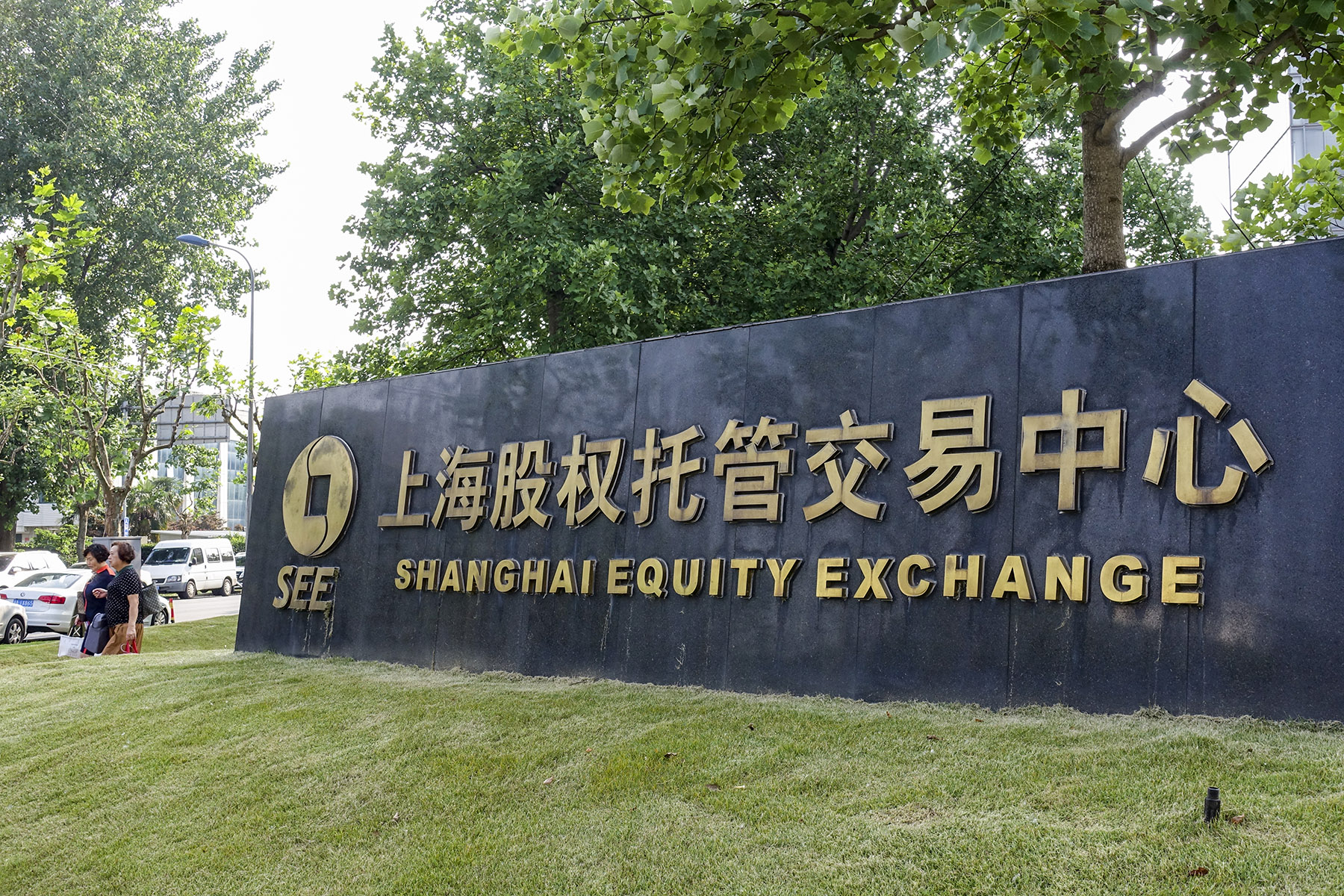Rise of S funds, new board for strategic SMEs promise to boost funding scene

Tighter market regulation combined with a nuanced approach to building a multilayered capital market has accelerated China's attempts to provide easier financial services, especially funding, to technology companies as well as growth-oriented small and medium-sized enterprises in emerging or strategic sectors, market insiders said.
While tighter regulation will help improve the quality of IPOs as well as provide easier exit route for early-stage investors (like private equity or PE firms) in startups, there are two other relatively recent and related developments that have brought glad tidings to the market in the last few months: the rapid growth of secondary funds, or S funds; and the establishment of a new board for small and medium-sized enterprises specializing in niche sectors.
A large amount of financial support is vital at this stage. To be listed on the new board not only connects us with more capital, but also offers various industrial resources.
Zhang Jian, founder of Shanghai Nutshell Therapeutics Inc
Together, these have the potential to significantly reshape China's capital market, experts said.
S funds enable their investors to purchase equity in unlisted firms funded by PE firms; they can also buy limited-partnership interests in PE firms themselves. Their growth offers reassurance that PE firms can easily exit their primary investments (startups), which is said to encourage more PE investments in startups.
READ MORE: Risk appetite strengthens upbeat mood
There have been a slew of S fund launches in recent months. In early May, six State-owned enterprises in Southwest China's Sichuan province poured in 1.5 billion yuan ($207 million) to set up the province's first S fund. The aim is to seek investment opportunities in strategic sectors like electronic information, biomedicine, new energy, artificial intelligence and advanced manufacturing.
In mid-April, East China's Anhui province completed registration of a 2.8 billion yuan S fund as part of its broader effort to build a multilayered capital market.
Shanghai, the financial hub of China, of course, leads the S fund pack. Shanghai International Group or SIG, the investment arm for State-owned assets in the city, unveiled a 10 billion yuan S fund in late April. Less than a year back, SIG had initiated a 1.5 billion yuan S fund, the first of its kind launched by SOEs in the city.
Zheng Siyuan, a Shanghai-based partner in market consultancy Bain& Co's Greater China PE practice, attributed the proliferation of S funds to the tightening regulatory grip on IPOs.

Zheng said an S fund can be seen as PE firms' trading in the secondary market. This segment has, at times since 2022, overtaken direct investment in the primary market. A few common practices have since emerged: a limited partner (or capital provider) directly transfers his equity stake to another general partner (or fund manager); or one GP sells some of his/her assets to another GP.
Apart from providing an exit channel for PE firms, S funds can serve as a "relay mechanism "between the primary market and the stock market by coming up with various products and professional practices, said Yang Bin, president of the Shanghai Science and Technology Innovation Fund, the manager of the newly launched 10 billion yuan S fund in Shanghai.
In this sense, S funds can help better connect technology companies with providers of financial services and industrial capital, he said.
The municipal government of Shanghai is well aware of the importance of S funds, which are indispensable in building a multilevel capital market. In September 2022, an S fund alliance was formed in Shanghai, comprising more than 80 leading securities firms, banks and funds of funds from home and abroad.
At the beginning of this year, Shanghai introduced a set of 32 measures to facilitate the high-quality development of equity investment. Among them, the development of S funds in the city was stressed.
Banks' asset management subsidiaries, insurers, trusts and State-owned funds of funds are encouraged to step up their investment in S funds and ensure their expansion. This is part of the city's efforts to better serve the real economy and stimulate technology innovation by giving more play to equity investment, according to the government document.
Data from Beijing-based PE services platform FOF Weekly showed that the total trading value of China's S funds was around 60 billion yuan in 2023. Globally, the trading size surged rapidly to over 112 billion yuan last year from only 22 billion yuan in 2010.
Wang Ke, senior director of Shanghai-based Gopher Asset Management, said that there is much room for growth of China's S fund market, given its low penetration rate and PE firms' high demand for profitable exits from their investments.
The focus on S fund development is just one example of Shanghai's recent efforts to improve its financial ecosystem for technologically advanced enterprises.
A new board for small and medium-sized companies specializing in niche sectors, commanding high market share and boasting strong innovation capacity, started trading at the Shanghai Equity Exchange or SEE — it is different from the Shanghai Stock Exchange — on March 26, with the first batch of 162 companies successfully listed.

The new board is directly connected to the China Securities Regulatory Commission, the country's top securities watchdog, by using blockchain technology, said Guan Xiaojun, president of Shanghai Exchange Group, the parent company of the SEE.
Such a connection can help more companies specializing in frontier technologies but still in their early stage of development, and those with much growth potential, as they will be brought under the regulatory radar. In other words, the candidate pool for listed companies will be expanded, which is conducive to improving the quality of listed companies, he said.
The new board provides extensive services, including PE financing, credit financing and bond financing.
Shanghai Nutshell Therapeutics Inc, which invents small molecules in the realm of drug discovery fostered by protein dynamics, is one of the first companies to be listed on this new board.
According to Nutshell Therapeutics' founder Zhang Jian, the company, founded in 2013, is now at a critical moment of advancing its research results from preclinical stage to clinical application.
"A large amount of financial support is vital at this stage. To be listed on the new board not only connects us with more capital, but also offers various industrial resources," he said.
Traditional financial institutions have also stepped up their efforts to nurture technology startups in Shanghai.
When Zhang Qianwu, an associate professor with Shanghai University, teamed up with his partners to set up a new business in 2022 to develop a laser communication machine for inter-satellite communication, the lack of financial support was the biggest hurdle, especially because SMEs lacked collateral for bank loans.
But China Construction Bank's Shanghai branch stepped in by providing 3.5 million yuan in credit to Zhang's startup. The technology speaks for itself and can suffice as collateral, said the bank.
By the end of 2023, more than 5,000 local tech-focused companies had benefited from the special technology credit plan of CCB's Shanghai branch. Some 2,014 firms were newly included in the plan last year.
Integrated circuits, biomedicine and artificial intelligence are the major sectors that the Shanghai branch of Industrial and Commercial Bank of China focuses on, as part of its efforts to facilitate the development of "hard technologies", said the branch's deputy head Xu Yanfeng.
ALSO READ: Stock market to be more efficiently regulated
Bank loans worth more than 56 billion yuan have been provided to local companies specializing in the above three areas. Meanwhile, the branch has also extended its financial services to over 80 percent of the "hard technology" companies based in Shanghai, said Xu.
Cheng Fengchao, a member of the academic advisory committee at the China Association for Public Companies, said a multilevel capital market rich in various products can provide all-round financial services to technology companies.
"VC (venture capital) and PE firms provide capital to technology firms during their early-stage development, helping them with R&D and market promotion. Bonds and real estate investment trusts can provide long-term and stable financing for industrial parks and R&D centers, which form the fundamental infrastructure needed for technology innovation. The derivatives market can help companies effectively manage the risks in raw material prices and foreign exchange," he said.
"It is when companies properly address the various uncertainties in the market and technology development that innovation can be carried out without interruptions."


